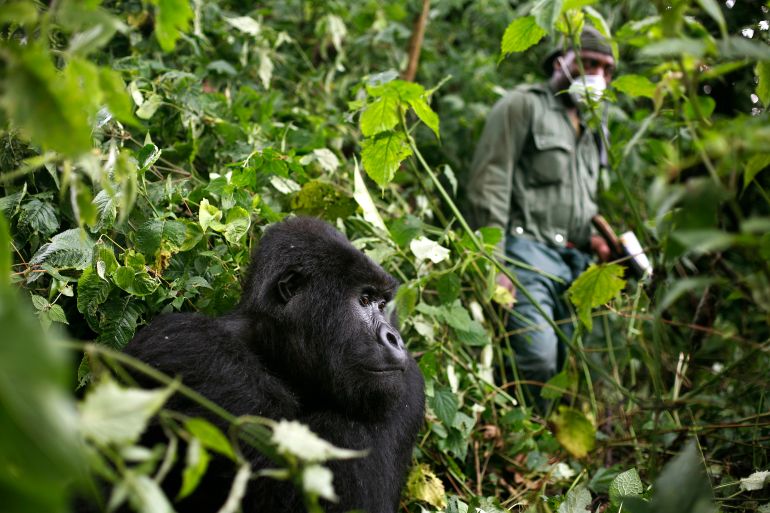Fossil fuels are the world’s worst deals to insure — here’s why
Major insurance companies are rightly dumping fossil fuel projects. But they should move faster — for their own good.

Since the Paris Agreement was signed in 2015, it has only become less likely that the world will meet that pact’s goals. Emissions must now be halved by the end of this decade to avoid the worst effects of the climate crisis.
Making finance flows and services consistent with this pathway is essential not only for the planet, but for the financial sector itself. Munich Re, the world’s largest reinsurance company, adopted a new policy last month excluding oil insurance and reinsurance.
Keep reading
list of 4 items‘We need you’: Solomon Islands’ support for US agency’s return revealed
Why are nations racing to buy weapons?
Parallel economy: How Russia is defying the West’s boycott
It is not a single actor: As of October, 41 insurers — including industry heavyweights such as Allianz, Munich Re and Swiss Re — representing 39 percent of the market for primary insurance and 62 percent for reinsurance had withdrawn or reduced cover for coal. For oil and gas, those figures now stand at 38 percent of reinsurance and 15 percent of primary insurance markets. Coal companies now face soaring premiums of up to 40 percent, reduced coverage and longer searches to access insurance.
Yet insurance and reinsurance companies need to move faster. Lloyd’s of London, for instance, announced in 2020 that it would stop insuring fossil fuel projects by 2030. But last year, it issued guidance suggesting this policy was optional for agents. According to the global campaign group Insure Our Future, many other insurers continue to insure new oil and gas projects in defiance of climate science and evidence.
As Russia’s war on Ukraine continues, the fossil fuel industry sees an opportunity to set up new infrastructure around the world. Governments that are desperate for revenue are falling for the promise of quick returns and opening their doors to these companies.
But insurance companies must stay wary — backing investments in oil and gas will only become more perilous.
One of the riskiest investments on offer today is in the Democratic Republic of the Congo (DRC). In July, it auctioned the exploration rights for 30 oil and gas blocks in an area of about 277,000sq km (106,950sq miles) – larger than the size of the United Kingdom.
Some of the blocks overlap with protected areas, including Virunga National Park, a World Heritage Site that is threatened by armed conflicts and now by the prospects of drilling. It is home to the Batwa and other local communities facing violence and discrimination, as well as 3,000 species of animals, including the critically endangered eastern gorilla.
Other blocks are in the peatlands of the Cuvette Centrale, which serve as a sink that stores about 30 gigatons of carbon, equivalent to three years of global emissions from fossil fuels.
Simon Lewis, a professor at Leeds University and head of a British-Congolese research group called CongoPeat, has called the DRC blocks “the worst place in the world to drill for oil”. Lewis has warned there may not be substantial oil deposits beneath the Congo forests, and if there are, getting them from extremely remote areas to global markets may not be economically viable. Yet even if exploration reveals no commercial-scale oilfields, it will seriously damage the rainforest’s biodiversity.
Beyond the DRC too, Russia’s war in Ukraine and rising energy prices have been one of the triggers of a new scramble for fossil fuels across Africa — from Senegal through Namibia to Uganda.
The International Energy Agency (IEA) has said the world needs a complete bar on all new fossil fuel investments to get to net-zero emissions by 2050, a minimum goal laid out by the IPCC, the United Nations panel of experts on climate change.
That prescription is particularly important for Africa, where oil production often has higher carbon intensity than elsewhere — the equivalent of about 40 percent more carbon dioxide per barrel.
Africa and the broader Global South are also often the worst sufferers of the effects of climate change. In October, Nigeria reported almost 800,000 displaced and 500 dead from floods, while Pakistan is still dealing with the aftermath of devastating floods that drowned a third of the country. In Somalia, one million people have been displaced due to a drought following a two-year historic dry spell. And the list goes on.
The new scramble for fossil fuels has devastating implications for human rights as well. Exploration and drilling rights are being granted in ways that sacrifice natural ecosystems that have been serving local and Indigenous communities for centuries. In the DRC, communities were not even informed before their land was auctioned.
Insurance companies have enormous power to force change. Without insurance, most new fossil fuel projects cannot proceed and existing ones must close. As the Insure Our Future coalition — which ranks the world’s top insurers on the basis of their fossil fuel exclusion policies — has demanded, it is vital to end insurance for new oil, gas and coal projects. It is also critical to phase out support for existing projects and for insurers to divest all assets from coal, oil and gas companies that are not aligned with a pathway that limits the planet’s temperature increase to 1.5 degrees Celsius (2.7 degrees Fahrenheit).
Finally, insurers must maintain robust due diligence and verification mechanisms to ensure clients fully respect and observe all human rights.
That is essential for the world but also a sensible business strategy for insurers: Projects in the DRC and other such vulnerable ecosystems likely represent the worst deals in the world to insure. They are best avoided — for everyone.
The views expressed in this article are the authors’ own and do not necessarily reflect Al Jazeera’s editorial stance.